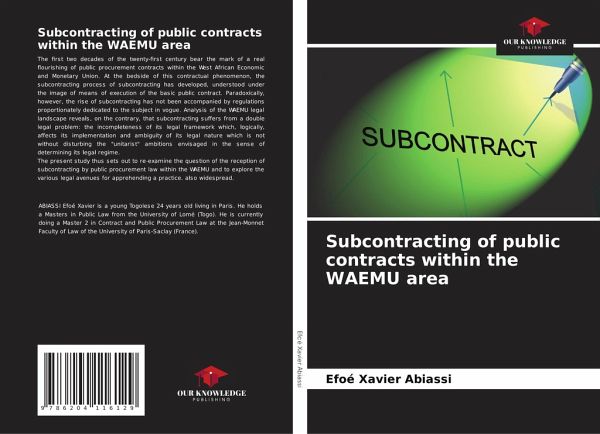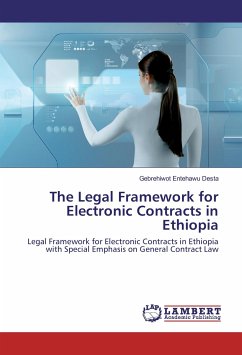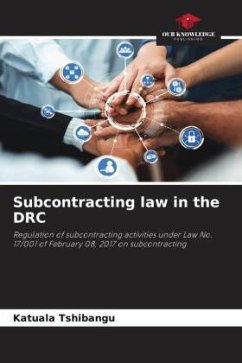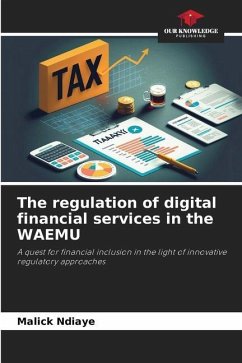
Subcontracting of public contracts within the WAEMU area
Versandkostenfrei!
Versandfertig in 6-10 Tagen
36,99 €
inkl. MwSt.

PAYBACK Punkte
18 °P sammeln!
The first two decades of the twenty-first century bear the mark of a real flourishing of public procurement contracts within the West African Economic and Monetary Union. At the bedside of this contractual phenomenon, the subcontracting process of subcontracting has developed, understood under the image of means of execution of the basic public contract. Paradoxically, however, the rise of subcontracting has not been accompanied by regulations proportionately dedicated to the subject in vogue. Analysis of the WAEMU legal landscape reveals, on the contrary, that subcontracting suffers from a do...
The first two decades of the twenty-first century bear the mark of a real flourishing of public procurement contracts within the West African Economic and Monetary Union. At the bedside of this contractual phenomenon, the subcontracting process of subcontracting has developed, understood under the image of means of execution of the basic public contract. Paradoxically, however, the rise of subcontracting has not been accompanied by regulations proportionately dedicated to the subject in vogue. Analysis of the WAEMU legal landscape reveals, on the contrary, that subcontracting suffers from a double legal problem: the incompleteness of its legal framework which, logically, affects its implementation and ambiguity of its legal nature which is not without disturbing the "unitarist" ambitions envisaged in the sense of determining its legal regime.The present study thus sets out to re-examine the question of the reception of subcontracting by public procurement law within the WAEMU andto explore the various legal avenues for apprehending a practice. also widespread.












